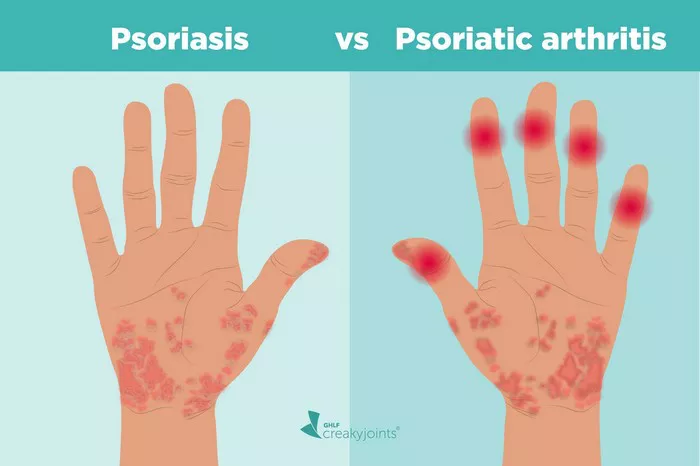Hidradenitis Suppurativa (HS) is a chronic skin condition characterized by painful lumps or abscesses that form in areas where skin rubs together, such as the armpits, groin, buttocks, and under the breasts. While HS itself is not cancerous, there has been ongoing debate and research regarding the potential link between HS and cancer development. Understanding this relationship requires a nuanced examination of the available evidence and the underlying mechanisms of both HS and cancer.
Understanding Hidradenitis Suppurativa
HS typically begins after puberty and is more common in women than in men. The exact cause of HS remains unclear, but it is believed to involve a combination of genetic, environmental, and immune system factors. People with HS often experience recurrent flare-ups, during which the affected areas become inflamed, painful, and may drain pus. These flare-ups can significantly impact quality of life, leading to physical discomfort, emotional distress, and social isolation.
Exploring the Cancer Connection
The potential association between HS and cancer has garnered attention from researchers and clinicians alike. Some studies have suggested an increased risk of certain types of cancer among individuals with HS, while others have found no significant correlation. The conflicting findings highlight the complexity of this issue and the need for further investigation.
One study published in the Journal of the American Academy of Dermatology reported a higher prevalence of squamous cell carcinoma (SCC) in patients with HS compared to the general population. SCC is a type of skin cancer that can develop in areas of chronic inflammation or injury. The researchers hypothesized that the persistent inflammation and tissue damage associated with HS may create an environment conducive to cancer development. However, it’s essential to note that this study was limited by its retrospective design and small sample size, emphasizing the importance of larger, well-designed studies to confirm these findings.
Conversely, other research has failed to establish a definitive link between HS and cancer. A systematic review and meta-analysis published in JAMA Dermatology found no significant association between HS and overall cancer risk. However, the authors noted that certain limitations, such as variations in study methodologies and the potential for publication bias, may have influenced the results. Despite these limitations, the study provides valuable insights into the current state of knowledge regarding HS and cancer.
Potential Mechanisms
To understand the potential relationship between HS and cancer, it’s crucial to consider the underlying mechanisms of both conditions. HS is characterized by chronic inflammation, which plays a central role in its pathogenesis. Inflammation is the body’s response to injury or infection, involving a complex interplay of immune cells, cytokines, and other signaling molecules. While acute inflammation is a necessary part of the healing process, chronic inflammation can contribute to tissue damage and increase the risk of cancer development.
In the context of HS, chronic inflammation leads to the formation of abscesses, sinus tracts, and scar tissue in the affected areas. These structural changes not only cause pain and discomfort but also create a microenvironment that may promote cancer growth. Chronic inflammation has been implicated in the development of various cancers, including SCC, by fostering DNA damage, cell proliferation, and angiogenesis (the formation of new blood vessels to supply tumors).
Additionally, individuals with HS often have comorbidities such as obesity, metabolic syndrome, and smoking, which are known risk factors for certain types of cancer. These factors further complicate the relationship between HS and cancer and underscore the importance of considering confounding variables in research studies.
Clinical Implications and Management Strategies
Given the potential association between HS and cancer, healthcare providers should remain vigilant in monitoring patients with HS for signs of malignancy. Clinicians should educate patients about the importance of regular skin examinations and encourage them to report any new or changing skin lesions promptly. Early detection and treatment of skin cancer can significantly improve outcomes and reduce the risk of complications.
In addition to cancer screening, effective management of HS is essential for reducing inflammation, controlling symptoms, and minimizing the risk of complications. Treatment strategies for HS may include topical or systemic medications, such as antibiotics, corticosteroids, and immunomodulators, as well as surgical interventions, such as drainage of abscesses or excision of affected tissue. Lifestyle modifications, such as weight loss and smoking cessation, may also play a role in managing HS and reducing cancer risk.
Furthermore, ongoing research is needed to elucidate the underlying mechanisms linking HS and cancer and to identify potential therapeutic targets. Collaborative efforts between dermatologists, oncologists, immunologists, and other specialists will be crucial in advancing our understanding of this complex relationship and improving outcomes for patients with HS.
Conclusion
While Hidradenitis Suppurativa (HS) itself is not cancerous, emerging evidence suggests a potential link between HS and certain types of cancer, particularly squamous cell carcinoma (SCC). Chronic inflammation, genetic predisposition, and shared risk factors may contribute to this association. However, further research is needed to confirm these findings and elucidate the underlying mechanisms. In the meantime, healthcare providers should remain vigilant in monitoring patients with HS for signs of malignancy and emphasize the importance of early detection and treatment. By addressing both HS and cancer risk factors, clinicians can optimize outcomes and improve quality of life for individuals affected by this chronic skin condition.

























